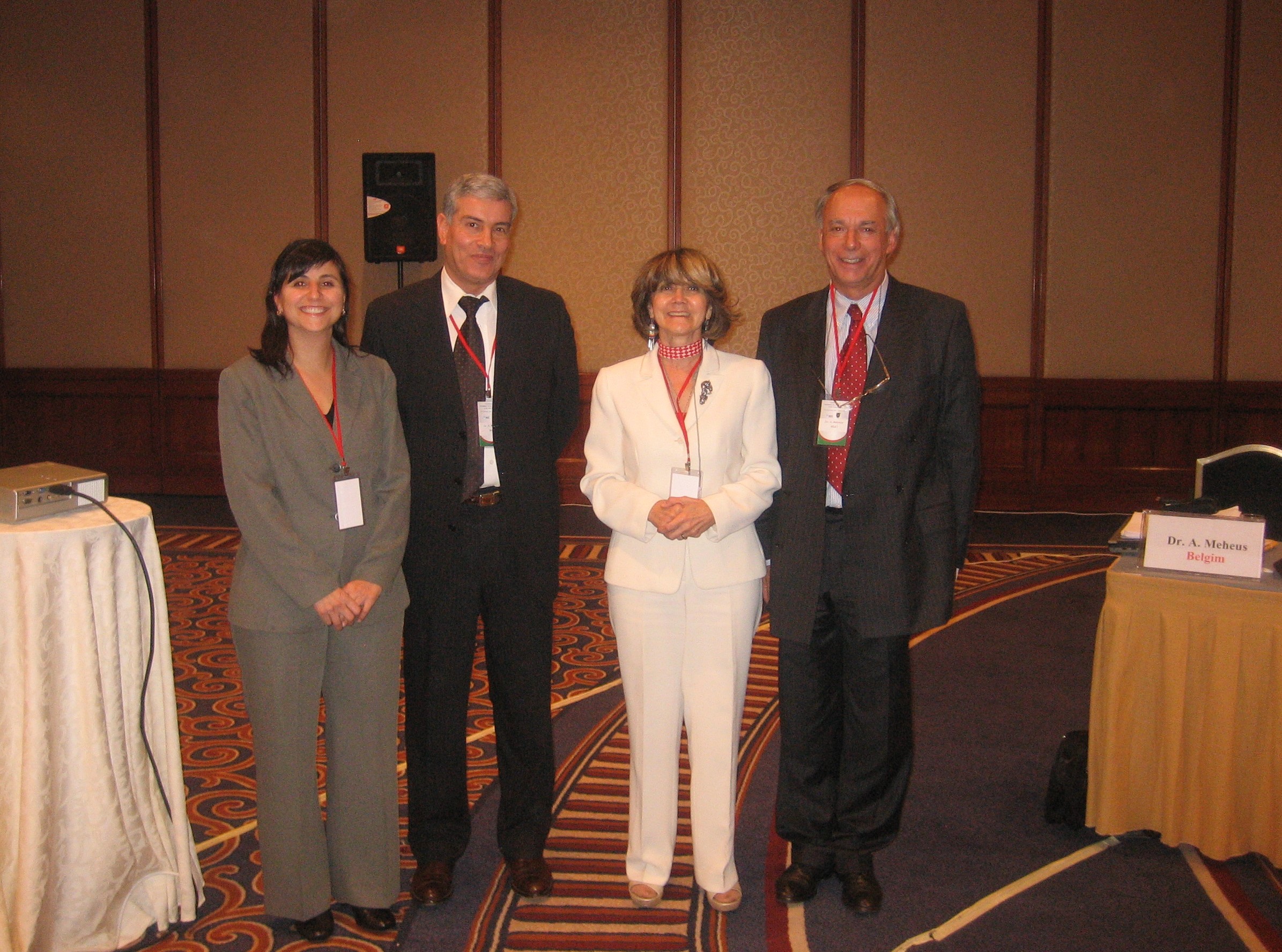Celebrating International Women’s Month: Dr. Najwa Khuri-Bulos

According to the UNESCO Institute for Statistics, women account for less than 30% of the world’s researchers. Reports also identify gender discrimination as one of the leading deterrents against women entering and excelling in fields relating to science, technology, engineering, and mathematics (STEM). This International Women’s Month, we wanted to hear from some of our past National Institute of Allergy and Infectious Diseases (NIAID) fellows to learn their opinions on what barriers exist for women in STEM fields today, best practices to address those challenges, and how to alter the future of women in previously male-dominated fields by encouraging future generations to pursue leadership positions. Throughout the month of March, we will be highlighting these women and sharing their challenges and successes as equal contributors to the field of research.
“The beauty of research is that the questions never end, and each can bring something to the discussion – man or woman, old or young. Research does not discriminate.” – Dr. Najwa Khuri-Bulos
Dr. Najwa Khuri-Bulos is a distinguished professor of Pediatrics and Infectious Disease at the University of Jordan. A specialist in pediatrics, infectious diseases, and infection control, she has contributed to the advancement of research in these fields by establishing the university’s Pediatric Residency Program, Infection Control Program, and Infectious Disease and Vaccine Center. She is a member of the Regional Technical Advisory Group (RTAG) with the World Health Organization (WHO) Regional Office for the Eastern Mediterranean (EMRO) and a member of an advisory group member of the global health team of the Infectious Disease Society of America (IDSA). She also served as the Founding Chairman of the Jordan Pediatric Committee and Founding Director of the Infectious Disease Board Subcommittee. In 2014, she received a research grant in the 2014 MENA Emerging Diseases Competition, where she worked as the principal investigator on her project, “Rhinovirus Genotyping in Amman.”
In your opinion, what changes – if any – are needed in the scientific system to attract more women scientists?
“From my own experience, some [necessary] changes are mainly related to the balance between family obligations, life, and the time and effort needed to conduct research. That said, effort should be made to include women in projects, especially when the issues are directed at women. Often times, it is not unusual to find some of these studies conducted by men preferentially in the absence of female researchers, and this issue should be addressed when providing grants for the conduct of research…I find it unusual that many studies addressing exclusively female issues such as breastfeeding [are] mainly conducted by men who will never be able to breastfeed!”
“Another issue that female researchers also face is the age at which they can engage in research is somewhat delayed,” Khuri-Bulos says. She describes women’s disadvantage as “late bloomers,” in the research field, since they are often expected to raise a family before focusing on their career – putting them at a [disadvantage] against their male counterparts. She proposes that the age of entry for females in grant competitions be extended five years, so as to allow women the chance to “catch up with their male colleagues and pursue their own research interests. “My own work was mainly done after what would have been considered late in the career of scientists, since I had family obligations which I had to prioritize, and the bulk [of my research] was done after I became 40 years old,” she recalls from her own experience.
What makes you most proud to be a woman in your field?
“I am most proud of having been the first female medical scientist to receive multiple prizes in Jordan in my field,” – which she competed for against men and women counterparts. “I am also proud of having been a role model for many females at the University of Jordan, who are also able to pursue distinguished careers in medicine.”
“Another issue of which I am also proud is my capacity to have impacted the medical field beyond the limits of my university… I was able to impact the fields of pediatrics and vaccinations in Jordan in ways that helped the society, the whole medical community and my research interests. In fact, I would call myself an ‘opportunistic researcher,’ in that since I had little support for research at the university, I was able to use my own practice as a platform for the conduct of research.”
Shown left: Dr. Najwa with several of her medical students in Amman, Jordan.
What advice do you have for women scientists starting out in their careers?
“I would like all women not to delay their interest in research until they are able to compete for grants or have more time. Volunteering to join research teams [at a young age] is the best way to learn and become a good researcher. Just joining the teams makes one more able to formulate questions for research and learn how to best perform research at a later age. Finally, I would like to draw attention to the fact that due to collaboration with colleagues beyond countries, my career in research has improved immensely with age…anyone who reviews my google scholar or research gate scores can see that I have improved with age and [have] not “retired.” The beauty of research is that the questions never end, and each can bring something to the discussion – man or woman, old or young. Research does not discriminate.”



